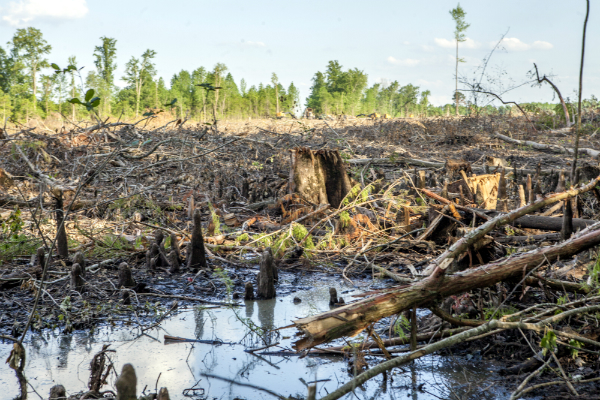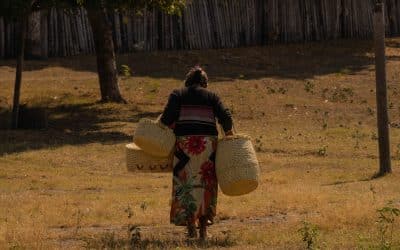12 avril 2019 – La Coalition mondiale des forêts [1], qui regroupe 99 ONG et organisations de peuples autochtones de 64 pays, ainsi que Dogwood Alliance [2], une ONG de conservation de la nature œuvrant pour la protection des forêts et des communautés du sud des États-Unis, s’associent aux groupes de résidents locaux, Duurzaam Dorp Diemen [3] et FossilFree Amsterdam [4], afin de s’opposer aux projets de Nuon concernant une centrale à biomasse à Diemen.
Continuer à lire en anglais…
Diemen residents are deeply concerned about the impact which such a plant would have on air quality – already poor because of high levels of road traffic and emissions from shipping – and thereby on public health. They also share the concerns of the Global Forest Coalition and Dogwood Alliance that Nuon’s planned biomass plant will put yet more pressure on forest ecosystems and increase CO2 emissions at a time when climate science shows that carbon emissions must be rapidly reduced if we want to have any hope of keeping global warming to within 1.5 or even 2 degrees.
Fred Vos from Duurzaam Dorp Diemen states: “Over 5,500 local residents, in a town village of less than 30,000, and citizens of nearby situated Amsterdam city districts have signed a petition against this plant. The local population does not want a polluting biomass plant imposed on their community, one which will affect young children, the elderly and people with asthma and other chronic health conditions the worst. Policy makers must listen and reject the proposal.”
Duurzaam Dorp Diemen previously requested information about Nuon’s plans for sourcing wood pellets, and was told that they had not decided yet where exactly they would obtain the pellets. Global Forest Coalition, Dogwood Alliance, Fossil Free Amsterdam and the residents’ group – all of which have submitted objections to the planning proposal – believe that the sourcing of biomass and its compatibility with climate and environmental policies objectives can and must be fully considered during the planning process.
Simone Lovera-Bilderbeek, director of the Global Forest Coalition, states: “Nuon makes bland promises about sourcing ‘sustainable biomass’ but this cannot be taken at face value when the company admits it has no idea where its wood pellets will actually come from. Large biomass plants elsewhere have ended up burning pellets sourced from the clearcutting of highly biodiverse forests in the southern US, British Colombia and elsewhere. Most importantly, the global demand for wood is already entirely unsustainable – adding to it can only accelerate forest degradation and deforestation.”
Rita Frost, Campaigns Director from Dogwood Alliance adds: “Dirty energy like biomass is bad for forests, climate, and our communities. Forests in the Southern U.S. do their job to clean the air and soak up carbon from the atmosphere when they are left standing. ‘Sustainable biomass’ is not a proxy for carbon neutrality and has historically led to the destruction of our beautiful bottomland hardwood forests. It’s time to stand for forests and reject biomass energy.”
The groups further point to scientific evidence – including an Open Letter signed by 800 scientists – that cutting down trees for energy always worsens climate change, regardless of logging practices.[5] A recent study shows that even burning forest residues results is incompatible with the goal of the Paris Agreement to keep global warming 1.5 degrees.[6]
———————————ENDS———————————
Contacts:
Fred Vos, +Duurzam Dorp Diemen, Tel +31(0)6-13936555
Almuth Ernsting, Global Forest Coalition, Tel +44(0)131-6232600
Notes:
[1] https://globalforestcoalition.org/
[2] https://dogwoodalliance.org/
[3] https://www.duurzaamdorpdiemen.nl/
[4] http://www.amsterdamfossielvrij.nl/
[5] The Open Letter by 800 scientists can found at http://www.pfpi.net/wp-content/uploads/2018/04/UPDATE-800-signatures_Scientist-Letter-on-EU-Forest-Biomass.pdf
[6] See https://iopscience.iop.org/article/10.1088/1748-9326/aaac88




